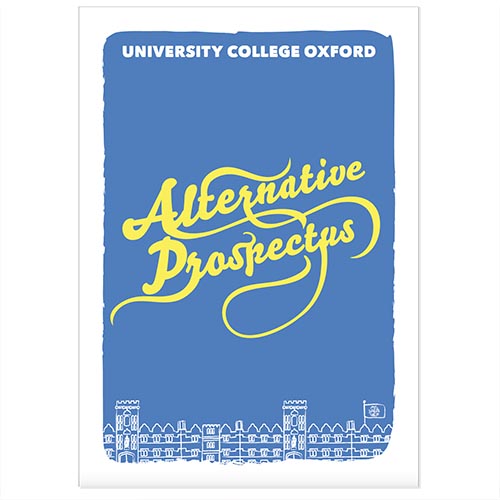 Classics is the study of the languages, culture, history and thought of the civilisations of ancient Greece and Rome. Whether you want to learn languages, read literature, explore the effect of the past on the present, or learn to apply science to arts, Classics has something to interest you. Oxford prizes the value of studying the Ancient World very highly and has unparalleled resources for doing so. The Oxford Classics Faculty is the largest in the world. Language learning and critical analysis of ancient literary texts are integral to the course, and students can learn either Latin or Greek from scratch (Course II), or apply having studied one or both languages beforehand (Course I). Both Classics courses give you the chance to study a variety of modules, for example, in Linguistics, Philosophy, archaeology, history and art criticism, and provide you with great scope for pursuing inter-disciplinary work,.
Classics is the study of the languages, culture, history and thought of the civilisations of ancient Greece and Rome. Whether you want to learn languages, read literature, explore the effect of the past on the present, or learn to apply science to arts, Classics has something to interest you. Oxford prizes the value of studying the Ancient World very highly and has unparalleled resources for doing so. The Oxford Classics Faculty is the largest in the world. Language learning and critical analysis of ancient literary texts are integral to the course, and students can learn either Latin or Greek from scratch (Course II), or apply having studied one or both languages beforehand (Course I). Both Classics courses give you the chance to study a variety of modules, for example, in Linguistics, Philosophy, archaeology, history and art criticism, and provide you with great scope for pursuing inter-disciplinary work,.
Univ supports its students across the whole range of options within the Classics course, whilst placing particular emphasis on the teaching core texts and the close study of language. The Univ Library has a great Classics section so books are readily available to you. The College offers several travel grants, which are specifically for students wishing to travel in support of their course. Classics is one of the few four year undergraduate courses, and Classicists at Univ are known for taking advantage of this time to build a strong and supportive community between different year groups.
Classics can be studied in combination with a variety of different subjects at Univ. In addition to Classics (Course I and Course II), you could apply the joint schools of Classics with English, Classics and Asian and Middle Eastern Studies, and Classics and Modern Languages (Russian and Czech only). (Correct for 2023 entry.) Univ also offers tuition in the related degrees of Classical Archaeology and Ancient History, and Ancient and Modern History (see History).
There is a wealth of information about the Classics course structure, possible option choices, and admissions criteria on the University of Oxford’s main website, available at ox.ac.uk
Any undergraduate degree at Oxford provides you with a wide variety of transferable skills and therefore Univ’s students progress to a diverse range of careers. For some, their undergraduate degree leads to academic research, industrial research or teaching. For many, their future career, for instance in business, government or the charitable sector, is defined less by the subject they studied and more by the skills they acquired. Oxford’s Careers Service provides destination statistics for graduates.
Resources
If you are considering applying for Classics, number of resources you might find useful to explore beyond the school curriculum can be found on Univ’s Staircase12 pages, including the Reading Bank and Resource Hub.
You may also like to read Classical Literature: A Very Short Introduction, written by one of Univ’s tutors, Dr William Allan – it is available from, amongst others, amazon.co.uk and Blackwells. Read our review here.






